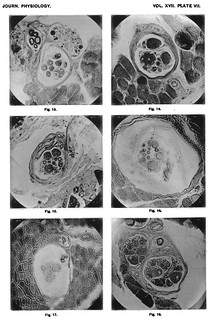- External URL
- Creation
-
Creators (Definite): Lorraine Daston; Peter Louis GalisonDate: 2007
- Current Holder(s)
-
- No links match your filters. Clear Filters
-
Cited by
 Charles S. Sherrington and 'Mechanical Objectivity'.
Charles S. Sherrington and 'Mechanical Objectivity'.
Description:
'Attending to the device of the cinematograph thus not only presents a means of better understanding historical changes to scientific epistemology such as those outlined by Lorraine Daston and Peter Galison (2007), but also brings to the fore a significant episode in the history of relations between metaphysics and knowledge concerning nature more generally. Though Daston and Galison science present a greatly more satisfying account of the epistemological concerns of turn-of-the-twentieth-century scientists than did Bergson, they similarly characterize the technical epistemology of the time as ‘mechanical.’ This paper shows that such terminology obscures both conceptual changes within early-twentieth century physiology and psychology themselves, and the historical status of tools as participants in these changes.'
-
Cited by
 T. Quick, 'Disciplining Physiological Psychology: Cinematographs as Epistemic Devices, 1897-1922', Science in Context 30 (4), pp. 423-474.
T. Quick, 'Disciplining Physiological Psychology: Cinematographs as Epistemic Devices, 1897-1922', Science in Context 30 (4), pp. 423-474.
Description:
'Attending to the device of the cinematograph thus not only presents a means of better understanding historical changes to scientific epistemology such as those outlined by Lorraine Daston and Peter Galison (2007), but also brings to the fore a significant episode in the history of relations between metaphysics and knowledge concerning nature more generally. Though Daston and Galison science present a greatly more satisfying account of the epistemological concerns of turn-of-the-twentieth-century scientists than did Bergson, they similarly characterize the technical epistemology of the time as ‘mechanical.’ This paper shows that such terminology obscures both conceptual changes within early-twentieth century physiology and psychology themselves, and the historical status of tools as participants in these changes.'
'Despite the broad validity of his characterization of scientific realism at the end of the nineteenth century (Daston and Galison 2007, Ch. 3), Bergson was not fully aware of the significance that the equipment that constituted the cinema of attractions had in fact attained in the physiological laboratories of Europe and the United States.'
'The increasingly prevalent epistemic ideal of producing recordable and therefore (it seemed) verifiable psychological effects must be considered as part of the same historical phenomenon in which kymographic recording came to be understood as the principal means by which the relevance of emotional to visceral nature might be understood (Daston and Galison 2007, Ch. 3).'
'Sherrington brought all of the resources that Daston and Galison associate with mechanical objectivity to bear in conducting his cinematographic experiment (Daston and Galison, 2007).'







